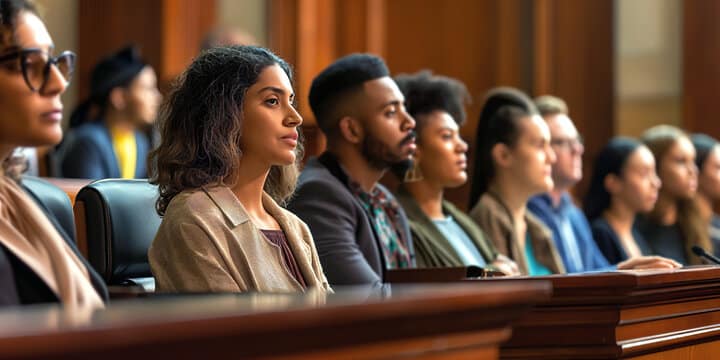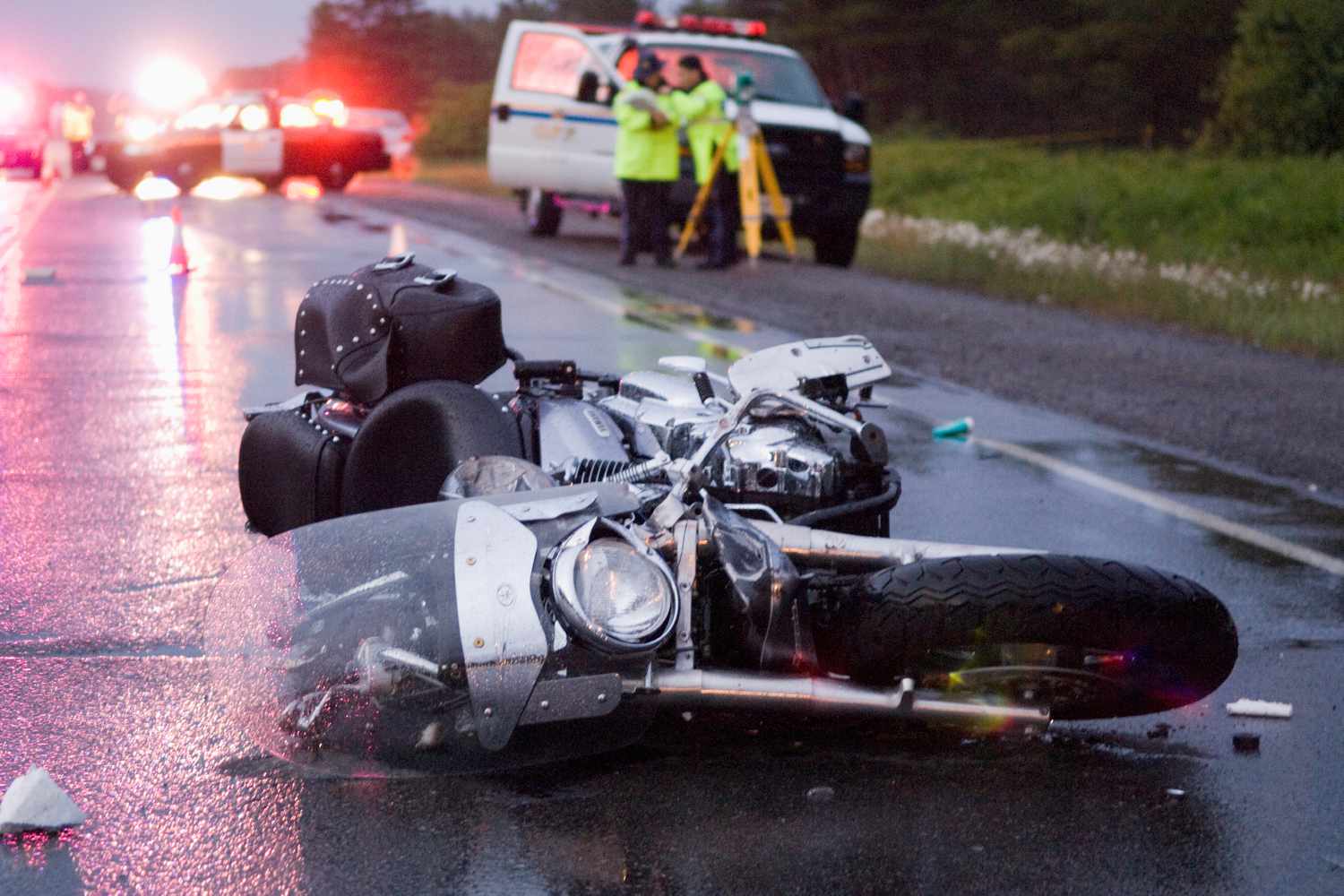
Jury
A jury is a group of individuals selected from the community to evaluate evidence and render a verdict in a legal case. In civil and criminal trials, the jury listens to testimony, examines evidence, and applies the law as instructed by the judge to determine the facts of the case and decide on liability or guilt. Jury members are expected to act impartially, basing their decisions solely on the evidence presented in the courtroom. At 770GoodLaw, we work to present compelling, clear evidence to juries, ensuring that our clients’ cases are fully understood and fairly evaluated.
Role of a Jury in Civil and Criminal Cases
Juries serve a crucial role in the justice system, providing an unbiased perspective and ensuring that the outcome of a case reflects the views of ordinary citizens. The role of a jury varies slightly between civil and criminal cases:
- In Civil Cases: In personal injury and other civil cases, the jury determines whether the defendant is liable and, if so, the amount of compensation owed to the plaintiff. Civil juries decide based on the “preponderance of evidence,” meaning it must be more likely than not that the defendant is responsible.
- In Criminal Cases: Criminal juries determine whether the defendant is guilty “beyond a reasonable doubt,” a higher standard of proof than in civil cases. If found guilty, the judge typically imposes the sentence, although the jury may recommend certain penalties in specific cases.
Selection Process for a Jury
Jury selection, or voir dire, is a process designed to ensure an impartial jury. Both sides in a case participate in selecting jurors, with the opportunity to dismiss certain individuals who may be biased. Key steps in jury selection include:
- Summoning of Potential Jurors: Community members are randomly selected and summoned for jury duty from voter registrations, driver’s licenses, or other databases.
- Questioning by Attorneys: Attorneys from both sides ask potential jurors questions to assess any biases, preconceptions, or conflicts of interest that could affect their impartiality.
- Challenges and Dismissals: Attorneys can dismiss certain jurors through challenges for cause (based on bias or unsuitability) or peremptory challenges (dismissal without a specific reason, limited in number).
- Seating of the Final Jury: Once both sides are satisfied with the remaining jurors, the final jury is seated to hear the case.
Responsibilities of a Jury
Once selected, jurors have specific responsibilities to ensure a fair trial. These include:
-
Listening to Evidence: Jurors must listen carefully to all evidence, witness testimony, and arguments presented by both sides without forming premature conclusions.
-
Deliberating as a Group: After hearing the case, jurors deliberate together in a private setting, discussing the evidence and deciding on the outcome based on the facts and legal instructions.
-
Rendering a Verdict: Jurors reach a unanimous verdict in criminal cases and, in some civil cases, a majority decision may be sufficient depending on state laws. The verdict reflects the jury’s collective assessment of the evidence.
-
Remaining Impartial: Jurors must avoid external information or influence, ensuring that their decision is based solely on the evidence presented in court.
Types of Juries
Several types of juries exist, each with specific functions within the legal system:
- Trial Jury (Petit Jury): The most common type of jury in civil and criminal trials, which listens to evidence, deliberates, and delivers a verdict on liability or guilt.
- Grand Jury: Primarily used in criminal cases, grand juries determine whether sufficient evidence exists to charge someone with a crime. They do not decide guilt but rather assess probable cause.
- Coroner’s Jury: In some cases, a coroner’s jury investigates deaths to determine cause and manner of death. These juries may provide recommendations but do not assign criminal or civil liability.
Challenges and Limitations of Jury Trials
While juries play a vital role in ensuring justice, there are challenges and limitations to the jury system, including:
-
Potential for Bias: Despite voir dire, some jurors may carry unconscious biases that can impact their decisions.
-
Complexity of Cases: Juries may struggle with highly technical or complex cases, especially when legal or medical details are involved.
-
Emotional Influence: Jurors may be influenced by emotions or sympathetic circumstances rather than strictly adhering to the facts and law.
-
Extended Deliberations: Complex cases may lead to lengthy deliberations, which can be time-consuming and mentally taxing for jurors.
How 770GoodLaw Presents Cases to Juries
At 770GoodLaw, we understand the importance of effectively communicating with juries and ensuring they fully comprehend the case. Our approach includes:
- Presenting Clear Evidence: We present evidence in a straightforward, organized manner to help jurors understand the facts without confusion.
- Using Expert Witnesses: In cases with technical or complex details, we bring in expert witnesses to explain the issues in a way that resonates with the jury.
- Crafting a Compelling Narrative: We develop a clear, persuasive story that frames the evidence logically, making it easier for jurors to connect with our client’s perspective.
- Respecting Jurors’ Role: We respect the jury’s responsibility to reach a fair verdict and ensure that our arguments focus on the facts and legal principles rather than emotional manipulation.
Importance of Legal Representation in Jury Trials
Jury trials require strategic preparation, effective communication, and a deep understanding of courtroom procedures. Skilled legal representation ensures that a case is presented in a way that resonates with jurors and increases the likelihood of a favorable outcome. At 770GoodLaw, we provide dedicated support for clients involved in jury trials, advocating for justice and fair compensation.
Why Choose 770GoodLaw for Jury Trials
Our commitment to Relentless Reliability and Sincetegrity drives us to provide comprehensive, client-centered support in jury trials. At 770GoodLaw, we work tirelessly to present a compelling case, guiding clients through the trial process with confidence and expertise.






